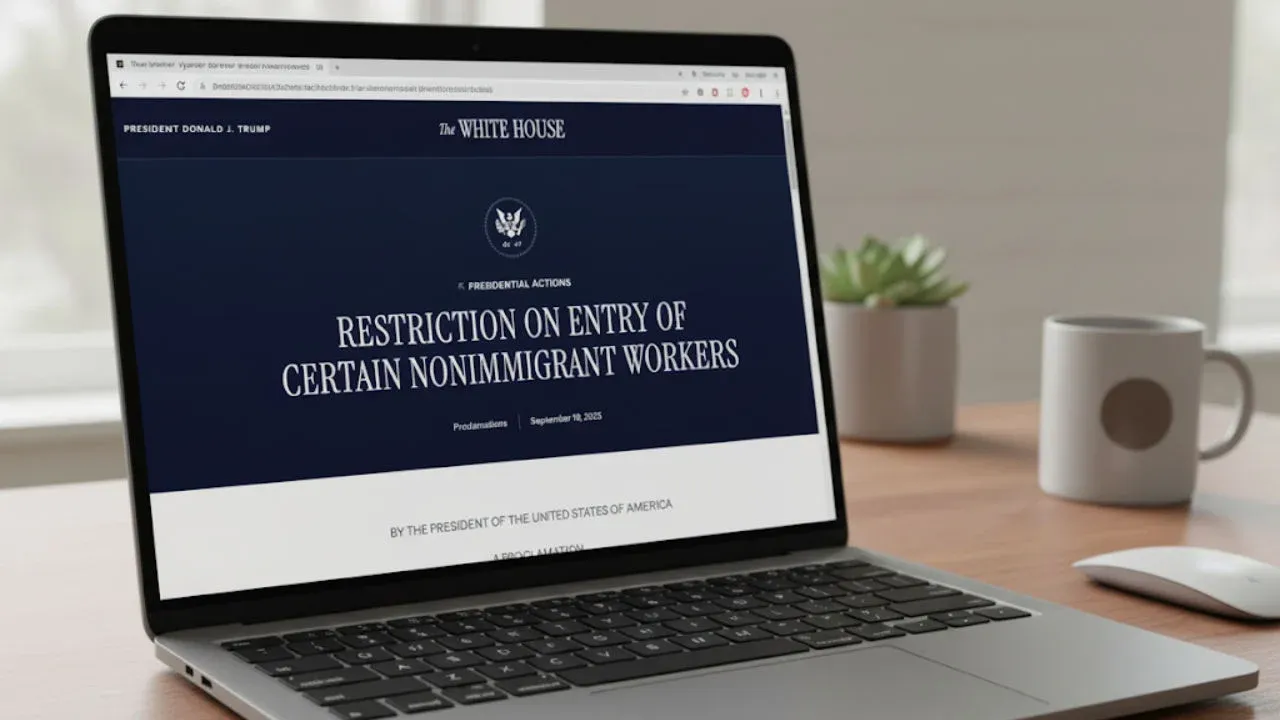
Update [Sun, 21st Sep 2025, 7:51am]: Two Government agencies have now clarified how the new H1B proclamation will be applied. According to guidance issued by USCIS and CBP, the $100,000 fee and entry restrictions will apply only to H-1B petitions that are filed on or after September 21, 2025.
This clarification is helpful and significant as it means that individuals who already hold an approved or pending H-1B petition, or who have a valid H-1B visa in their passport, should still be able to enter the United States after September 21 without being subject to the new fee. Travellers in this situation should, however, be prepared for possible delays or confusion at ports of entry as officers begin to implement the proclamation.
As of now, the $100,000 fee is expected to apply only to new H-1B petitions filed for foreign nationals outside of the United States after September 21. The government has indicated that more detailed instructions on how this fee will work are still forthcoming.
Original Story: The government just issued an unprecedented executive order that imposes a $100,000 fee on people entering the United States under the H-1B program. The order goes into effect at midnight on September 21, and anyone entering after that time will be subject to the new rules.
The timing is astounding. H-1B applicants for this year are scheduled to start work on October 1. Those outside of the U.S. can normally enter up to 10 days before October 1, which means September 22. The new rule would block these applicants from entering. This timing appears to be intentional. Just as concerning is that people who are currently in H-1B status but are outside the country would also be subject to the $100,000 fee if they try to return after September 21.
Moreover, while those who are already in the U.S. should be fine if they stay, the timing of this order also targets them. If they decide to leave, they may not be able to reenter without the company paying the new $100,000 fee. This really is hard to believe.
What This Means if You Are in the U.S.
If you are already inside the U.S. in H-1B status, you should be fine if you do not leave. But if you depart the country, reentry could trigger the new fee.
What This Means if You Are Outside the U.S.
If you are a current H-1B holders who is outside of the country, you should return before midnight on the 21st if you want to avoid the risk of being blocked. The proclamation was issued on Friday so this does not give much time.
New H-1B approvals starting October 1: You should carefully consider your entry strategy. Keep in mind that you can only enter 10 days before the start date and the timing collides directly with the new rule. Those who try to enter after September 21 may face denial of entry or removal. You should be particularly careful as if the intent was to block new applicants from entering, the Government will strictly enforce the 10 day rule as people enter. If you are a new H-1B worker trying to enter the United States before the 10-day window allowed by regulation, you could be subject to expedited removal at the border. This is a serious consequence. Expedited removal not only denies you entry on the spot but also carries a five-year bar from reentering the United States. With the new proclamation in place, attempting to arrive early is especially risky and could have long-lasting consequences beyond this year’s H-1B program.
What Should You do?
There will almost certainly be lawsuits challenging this proclamation. Congress is the branch of government that makes immigration law, and a big change like adding a $100,000 fee as a penalty to discourage use is supposed to go through Congress. Even modest USCIS fee increases have a very specific regulatory approval process. By trying to implement a significant change like this through an executive order, the administration is stepping into Congress’s role and changing the rules on its own. Courts are likely to be asked to decide whether the government has the power to do this, and it is very possible that the new rule will not hold up. Because of this uncertainty, you may want to consider waiting rather than rushing to make travel or entry decisions until it becomes clearer how the courts will rule.
While this policy may not stand, the damage is done. Thousands of applicants and employers now face uncertainty, expense, and inconvenience, with yet another blow to the credibility of the H-1B program.
We will continue to follow developments and report back as new information becomes available.